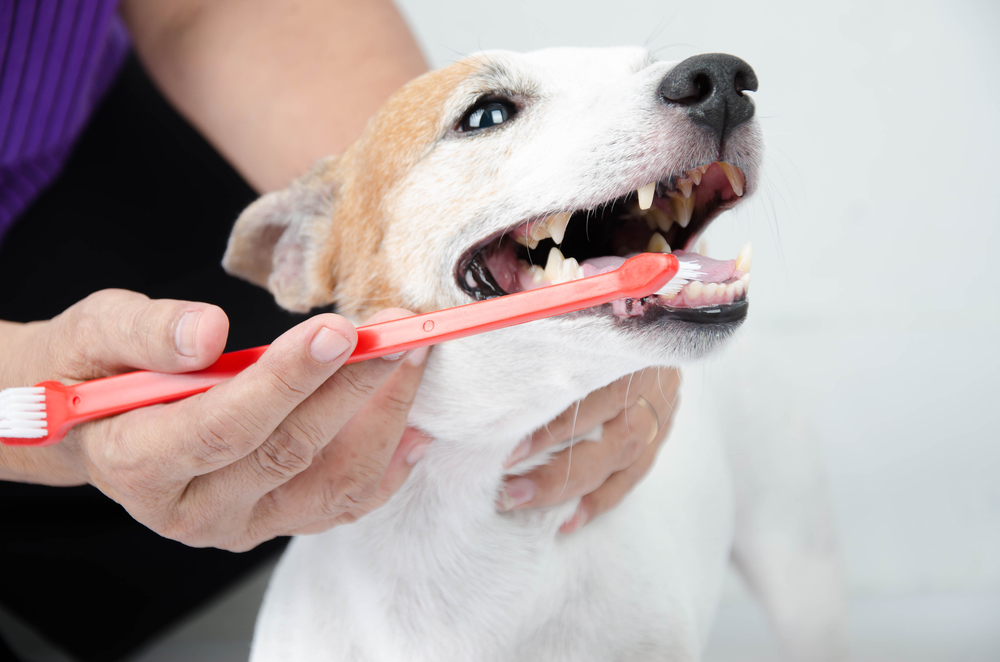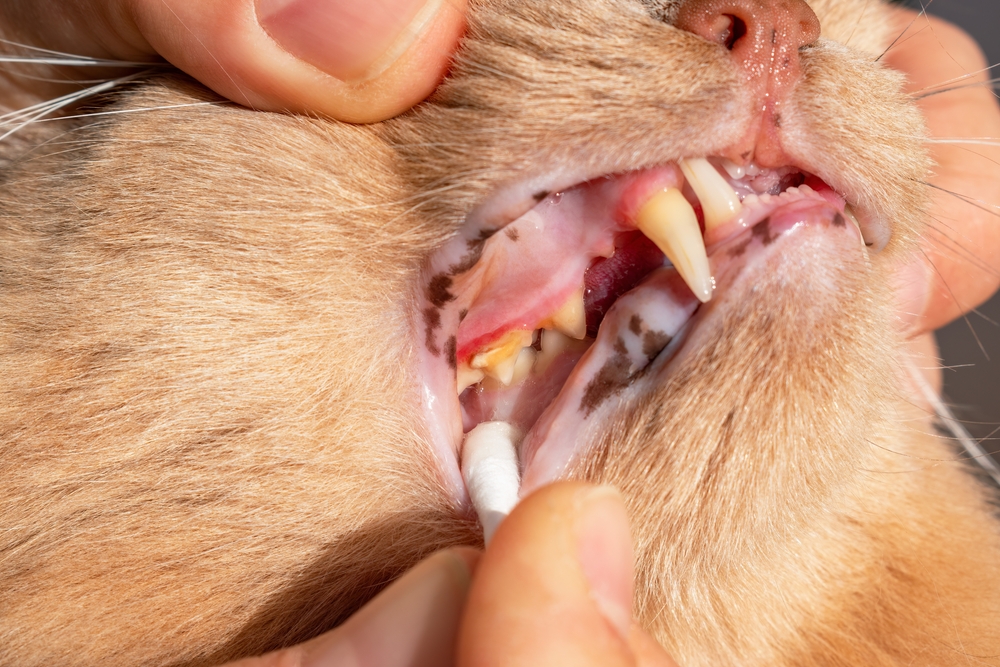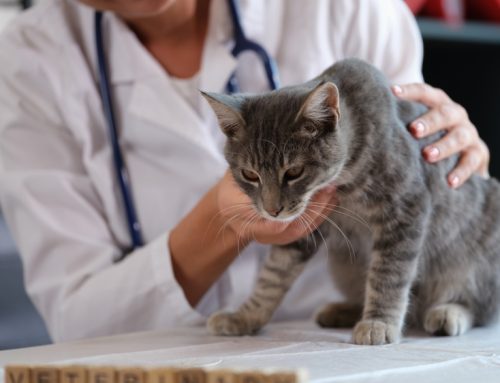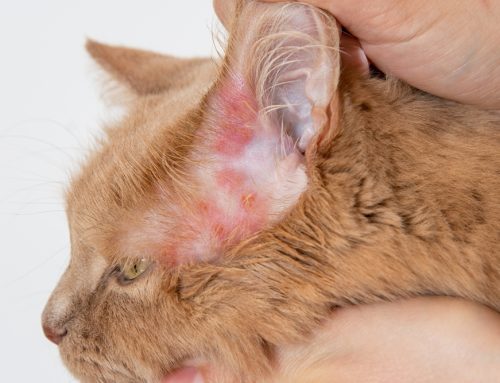February isn’t only about valentines, roses, and heart-shaped chocolates. It’s also National Pet Dental Health Month, a time to celebrate our pets and remind ourselves of the importance of their oral hygiene. Unfortunately, periodontal disease signs are not always visible, and you may not realize your pet needs a dental checkup as well as a good belly rub and a new squeaky toy.
At Chiefland Animal Hospital, we’re all about keeping your pet’s mouth healthy, with a dazzling smile. We’ve put together a guide to help you spot periodontal disease signs in your pet, along with the potential long-term risks and at-home and in-hospital prevention tips.
Recognizing periodontal disease in pets
Periodontal disease (i.e., gum disease) is a surprisingly common condition in pets. Studies show that more than 80% of dogs and cats have some form of gum disease by age 3. The disease often shows no visible signs at first, followed by subtle signs that many pet owners can miss, and finally becomes obvious when the pet is clearly seriously ill. More common signs include:
- Bad breath — A foul odor (i.e., halitosis) from your pet’s mouth is a telltale sign of bacterial buildup and inflamed gums.
- Excessive drooling — While some drooling is normal, a sudden increase or drooling along with other symptoms can indicate mouth discomfort.
- Red, swollen, or bleeding gums — Healthy gums are pink and firm. If your pet’s gums show any redness or swelling, or easily bleed, they may have gingivitis, the first stage of periodontal disease.
- Difficulty eating or chewing — Oral pain can make mealtime a struggle. If your pet hesitates to eat or chews their food differently than usual, they may have the disease.
- Loose or missing teeth — These signal more advanced gum disease and will require veterinary treatment to prevent further problems or complications.
- Discoloration or tartar buildup — Yellow or brown discoloration of the teeth signals plaque and tartar buildup, which can eventually cause gingivitis and and more serious periodontal disease.
Also, pet owners should keep an eye out for these less common signs:
- Weight loss — Difficulty eating because of dental pain can lead to unintended weight loss in your pet.
- Lethargy — Chronic pain from oral issues can sap your pet’s energy and they will be less active.
- Facial swelling — In severe cases, oral infections spread to surrounding tissues, causing noticeable swelling in the face or jaw.
- Difficulty picking up or carrying objects — Mouth pain can make grasping toys or everyday objects challenging for your pet.
Longterm consequences of pet periodontal disease
Left untreated, periodontal disease can progress, with serious consequences that affect your pet’s overall health, including
- Tooth loss and gum recession — This can lead to further pain, difficulty eating, and sometimes jawbone fractures.
- Jawbone infections — Infection can spread to the jawbone, causing painful abscesses and bone loss.
- Damage to internal organs — Bacteria can travel from the mouth, enter the bloodstream, and harm organs such as the heart, kidneys, and liver.
- Increased risk of other health problems — Studies show links between periodontal disease and conditions such as diabetes, arthritis, and respiratory issues.
Preventing periodontal Disease

The good news is that periodontal disease is largely preventable with proper oral hygiene care by you and your veterinarian. Here’s what you can do:
- Brush your pet’s teeth regularly — Aim to brush your pet’s teeth at least two to three times per week using a pet-specific toothpaste and toothbrush. Never use human toothpaste, which is toxic to pets
- Offer dental chews — Choose appropriately sized chews that are designed to help remove plaque and tartar. Always supervise your pet while they chew.
- Feed a diet that promotes dental health — Ask your veterinarian to recommend a pet food that is formulated specifically to support oral health.
- Consider dental toys and treats — Give your pet chew toys with ridges or textures designed to help clean teeth and dental treats that freshen their breath and promote oral health.
- Schedule regular dental checkups — Last but not least, ensure you schedule regular wellness exams, including dental checks, at Chiefland Animal Hospital. We recommend at least annual exams for all pets, whether or not they seem healthy.
National Pet Dental Health Month is the perfect reason to prioritize your pet’s oral health, but don’t let it be the only month. Use our tips and schedule regular dental checkups at Chiefland Animal Hospital to safeguard your pet’s oral health and overall well-being. That’s something to smile about.








Leave A Comment